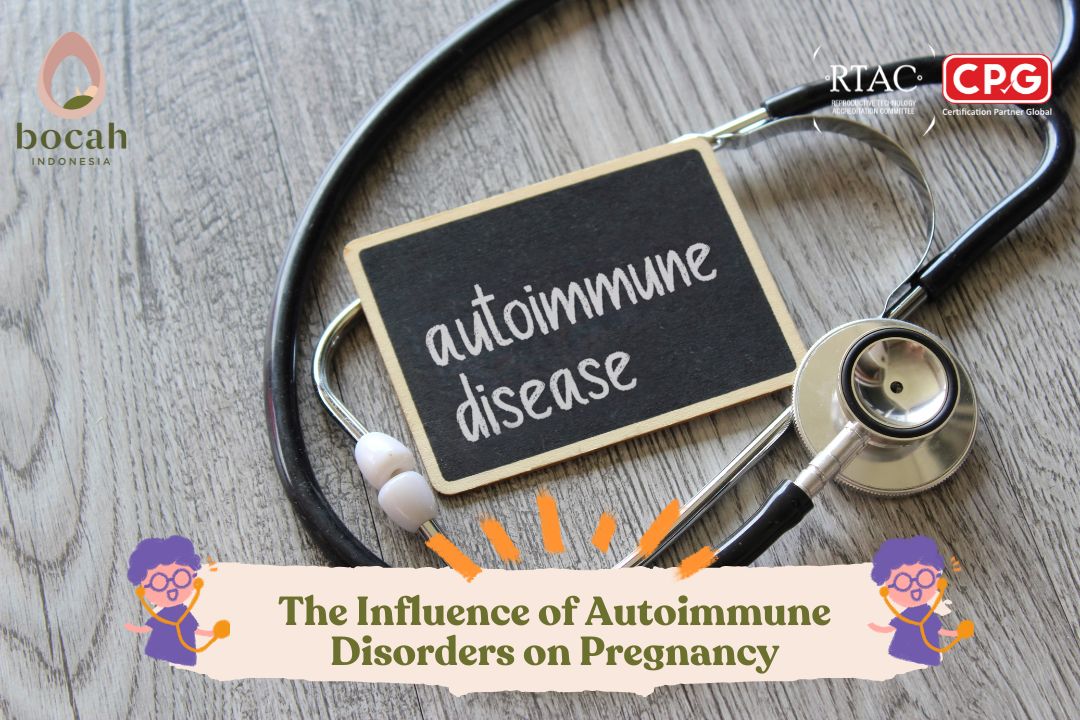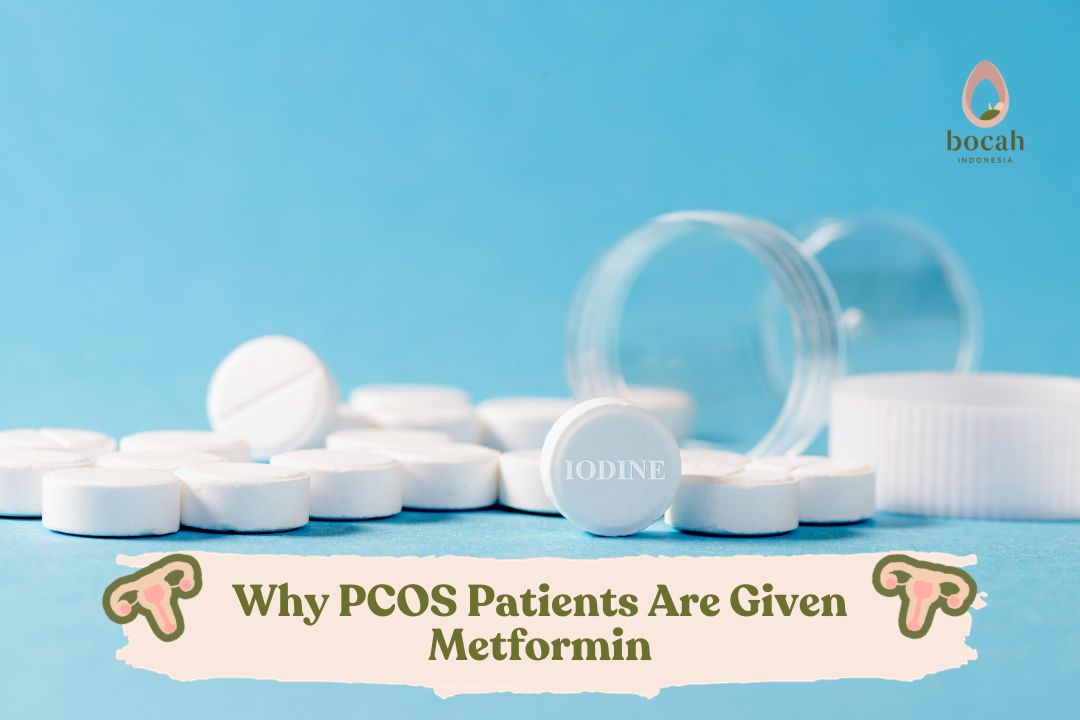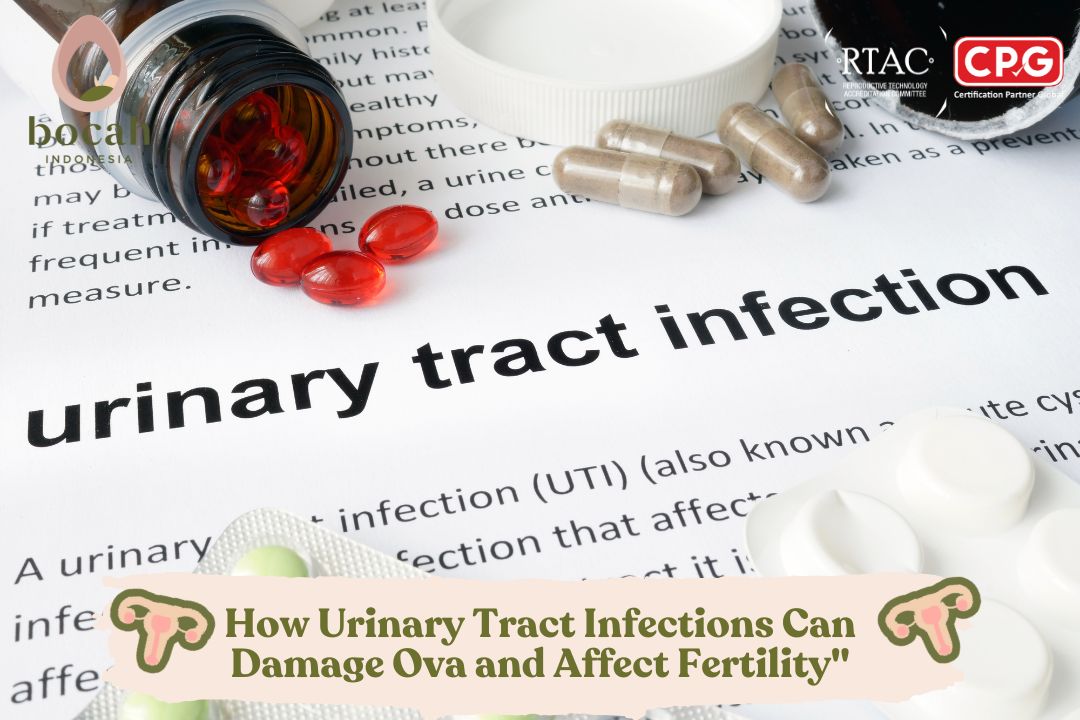Do Skincare Products Really Cause Women to Experience Fertility Disorders?

Caution! Some chemicals in skincare products may potentially make it difficult for women to conceive.
The use of skincare products is not only for maintaining skin health and appearance. In reality, these products also provide confidence when the care yields satisfying results. Unfortunately, some chemicals in skincare products can affect women’s sex hormones that play a role in the reproductive process. These products should not be used when you and your partner are struggling to conceive.
How do skincare products affect fertility?
Some ingredients in skincare products fall under endocrine-disrupting chemicals (EDC). This is a problem because EDCs are commonly used routinely and are absorbed through the body’s largest organ, the skin.
Researchers from George Mason University, Virginia, USA found a connection between the chemicals used in cosmetic and personal care products and changes in women’s reproductive hormone levels. They analyzed 143 urine samples from women aged 18-44 with no history of chronic diseases and no contraceptive use.
The results showed that women whose urine contained chemicals such as parabens (a preservative widely used in cosmetic products), benzophenone (used as a sunscreen), and bisphenol A had abnormal levels of estrogen and progesterone hormones. Furthermore, these hormonal changes affected reproduction by causing irregular menstruation or preventing the eggs from maturing and undergoing ovulation.
Tanya Mincah tentang Promil?
Men are also not exempt from the effects of EDCs. A study of 315 men at a fertility clinic in Poland found that men whose urine had high levels of parabens had lower levels of male hormones (testosterone) and more sperm with abnormal shapes. High levels of parabens in urine were also associated with sperm DNA damage, disrupting sperm motility or making it slower, making it difficult to reach the egg. All of these contribute to male infertility.
Why do these things happen? Experts theorize that many EDCs structurally resemble reproductive hormones, such as estrogen, progesterone, and testosterone. After EDCs are absorbed into the body, they bind to hormone receptors, thus affecting the function of these hormones. In this case, EDCs can act as agonists (mimicking) or antagonists (inhibiting) the action of the target hormones. As a consequence, there will be disturbances in the hormonal system. These disturbances can be direct or indirect by altering hormone levels, affecting hormone formation or metabolism, or changing how hormones function.
What are the contents of skincare products that affect fertility?
After understanding their effects, let’s take a look at the contents of skincare products that need to be watched out for.
Retinol
Retinol is highly favored by dermatologists and users because it is the main ingredient that makes the skin smoother, firmer, and brighter. However, its use is not recommended for women who are pregnant or couples trying to conceive.
Studies show that retinol and retinoids can be harmful to a developing fetus. Retinol can penetrate the skin and enter the bloodstream, which is then passed on to the fetus.
As an alternative to retinol, bakuchiol can be used. This is a natural ingredient derived from the plant psoralea corylifolia. Bakuchiol has antioxidant and anti-inflammatory effects similar to retinol, making it a good alternative for addressing signs of aging such as fine lines, wrinkles, and uneven skin tone. This ingredient also helps tighten and reduce the pores of the skin.
Accutane
This very popular ingredient in acne treatment products should be completely avoided when couples are trying to conceive. If you have previously taken oral Accutane, its use should be stopped one month before starting a pregnancy program.
Hydroquinone
This is a chemical used to lighten darkened skin due to hyperpigmentation, such as melasma or chloasma. Studies have found that the skin can absorb hydroquinone in skincare products up to 35-45 percent. Therefore, products containing hydroquinone should be avoided during pregnancy.
Phthalates
Phthalates are chemicals added to skincare products to maintain their color. These chemicals are classified as EDCs and are usually abbreviated as DEP, DBP, and DEHP in skincare products.
Parabens
Parabens are also classified as EDCs and are usually added to skincare products for preservation, as well as being bacteria and fungus-free. These chemicals are usually found in soaps, creams, and facial cosmetics. On the product packaging label, look for the word “paraben” at the end of its chemical name. The most commonly found ones are propylparaben, methylparaben, butylparaben, and ethylparaben. Usually, several parabens are used in combination to enhance effectiveness.
Benzophenone
This chemical is added to prevent skincare products from dissolving or melting due to heat. So, pay close attention to this content in sunscreen products. On the product packaging label, look for the word “benzone” at the end of its chemical name. The most commonly found ones are sulisobenzone, oxybenzone, and sodium sulisobenzone. Also, check for anything written as “BP” followed by a number.
Bisphenol
This chemical, known by the abbreviation BPA, has been banned in cosmetic formulations. However, the product can still be found in the packaging of facial cosmetics. To ensure the product used is BPA-free, look for products labeled as “BPA-free” or “eco-label“.
Polyfluoroalkyl substances (PFA)
These chemicals are sometimes added to help penetrate the skin. This substance can be found in moisturizers and some foundation creams. On the product packaging label, look for anything containing the word “fluoro”. Also, avoid any products containing the abbreviation PTFE.
Safe Contents of Skincare Products
After knowing the ingredients to be wary of and avoided, you might wonder which product ingredients are safe to use during a pregnancy program or while pregnant. Moreover, hormonal changes and stress can trigger acne, making skincare necessary.
Know that, in reality, most skincare and acne products are safe. For clarity, let’s look at some products that have been confirmed as safe by the American College of Obstetricians and Gynecologists (ACOG).
Salicylic acid is one of the most popular ingredients used to combat acne and blemishes. Some sources include this as something to avoid during pregnancy or when trying to conceive. However, this only applies to products containing high doses of salicylic acid, such as peels, masks, and oral medications. ACOG has even allowed the use of over-the-counter products containing topical salicylic acid (for external use). Other ingredients, such as benzoyl peroxide, are also considered safe when used as directed.
Niacinamide and azelaic acid. Both of these ingredients are alternatives to salicylic acid for treating acne. Both of these ingredients are safe for women who are pregnant or in a pregnancy program.
Vitamin C. This ingredient is commonly found in serum preparations and functions to whiten and tighten the skin. Vitamin C is safe for pregnant women and women trying to achieve pregnancy.
Skin brightening ingredients containing AHA (alpha hydroxy acids). These acids come from sugarcane and include glycolic acid, lactic acid, and mandelic acid. The function of these ingredients is to help exfoliate the skin and promote the turnover of healthy skin cells.
Sunscreen. The recommended sunscreen is mineral-based, containing titanium dioxide and zinc oxide. These minerals remain on the skin and are not absorbed like chemical sunscreens, making them safe. Sunscreen is essential for women trying to conceive because certain hormones can make a woman’s skin more vulnerable to damage from UV exposure. Therefore, it should be used daily regardless of skin color or season. The goal is to prevent the appearance of melasma, dark spots around the mouth, cheeks, and forehead. Melasma can be very difficult to treat once it appears, so it needs to be prevented by applying sunscreen with at least SPF 30 every day and reapplying every 2 hours when outdoors.
Choose Safe Skincare Products
To ensure that skincare products used are safe during pregnancy and pregnancy programs, you can do two simple things:
Carefully read the ingredient list. Nowadays, manufacturers are required to list the ingredients in their products if the products are designed for close contact with the human body.
Choose fragrance-free. Fragrances in products often come from additional synthetic chemicals. While many fragrance chemicals are not harmful, manufacturers are not required to list them on the packaging. Therefore, it cannot be known whether these fragrance chemicals are harmful or not. In general, it is best to assume the worst and choose fragrance-free products.
Conclusion
Skincare products contain various types of chemicals. Unfortunately, some of them are known to have adverse effects on women’s fertility. Therefore, women who want to conceive or are pregnant should always carefully check the ingredients and composition of these skincare products.
Source:
- Amir S, Shah ST, Mamoulakis C, Docea AO, Kalantzi OI, Zachariou A, Calina D, Carvalho F, Sofikitis N, Makrigiannakis A, Tsatsakis A. Endocrine disruptors acting on estrogen and androgen pathways cause reproductive disorders through multiple mechanisms: a review. International Journal of Environmental Research and Public Health. 2021 Feb;18(4):1464.
- Jurewicz J, Radwan M, Wielgomas B, Dziewirska E, Karwacka A, Klimowska A, Kaluzny P, Radwan P, Bochenek M, Hanke W. Human semen quality, sperm DNA damage, and the level of reproductive hormones in relation to urinary concentrations of parabens. Journal of occupational and environmental medicine. 2017 Nov 1;59(11):1034-40.
- Pollack AZ, Mumford SL, Krall JR, Carmichael AE, Sjaarda LA, Perkins NJ, Kannan K, Schisterman EF. Exposure to bisphenol A, chlorophenols, benzophenones, and parabens in relation to reproductive hormones in healthy women: a chemical mixture approach. Environment international. 2018 Nov 1;120:137-44.










